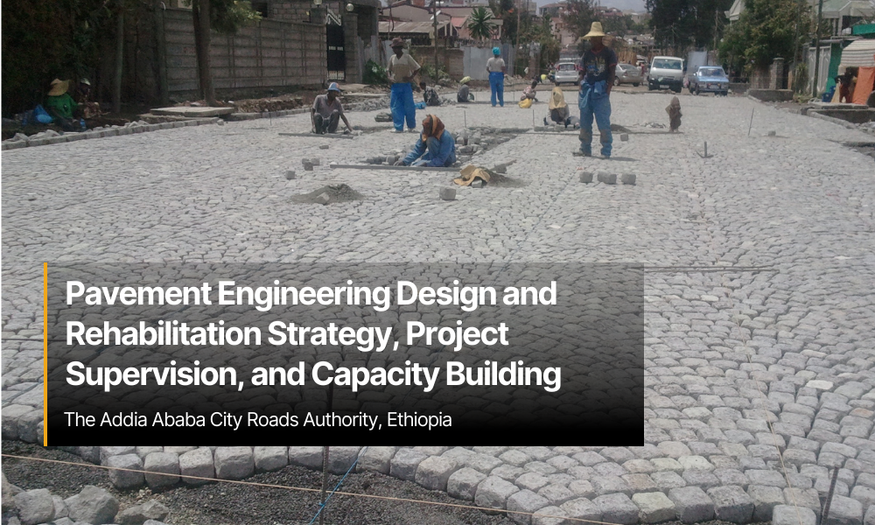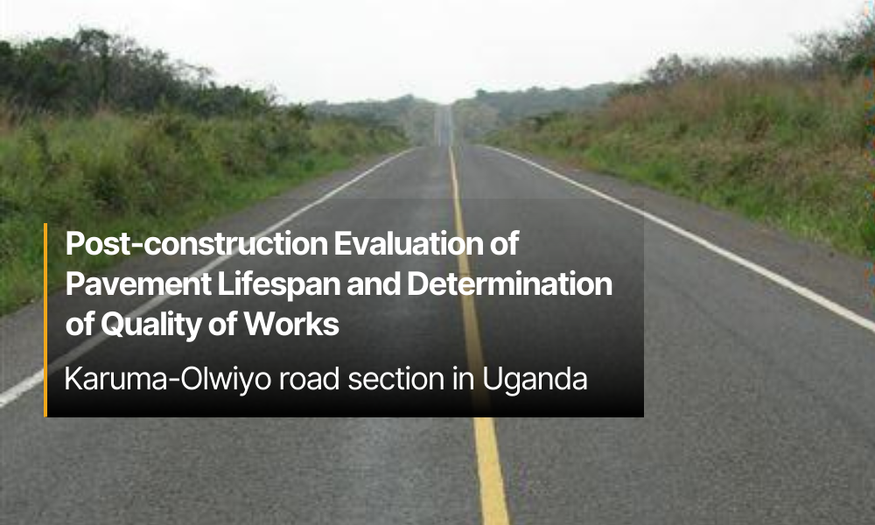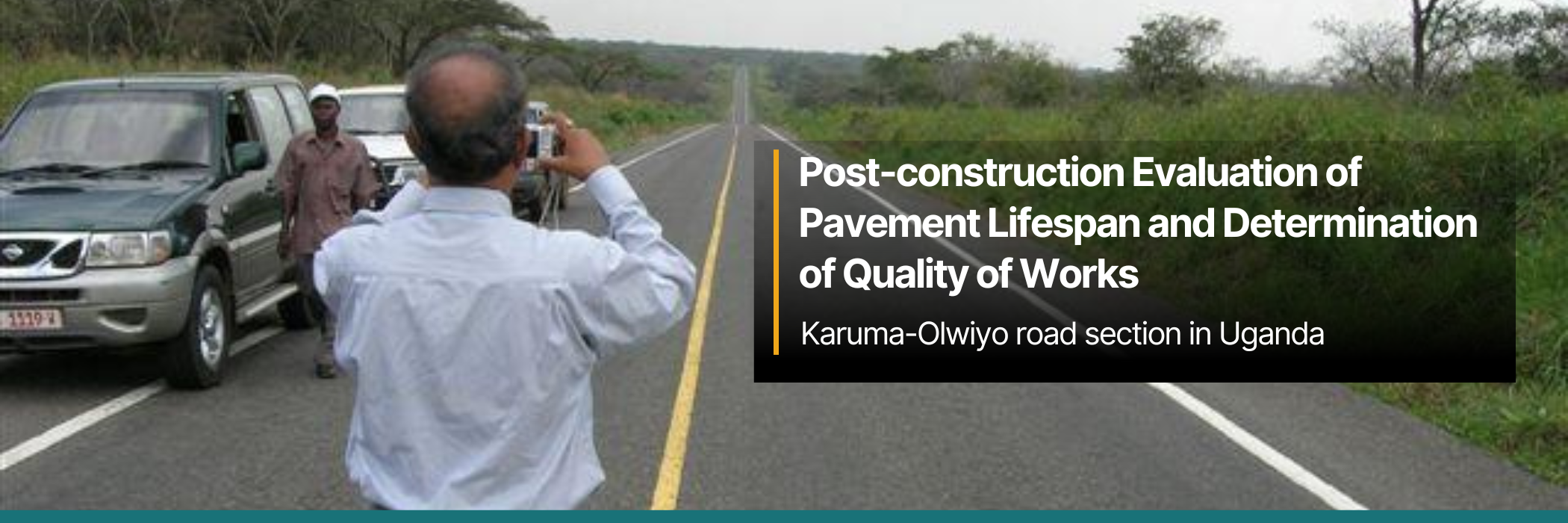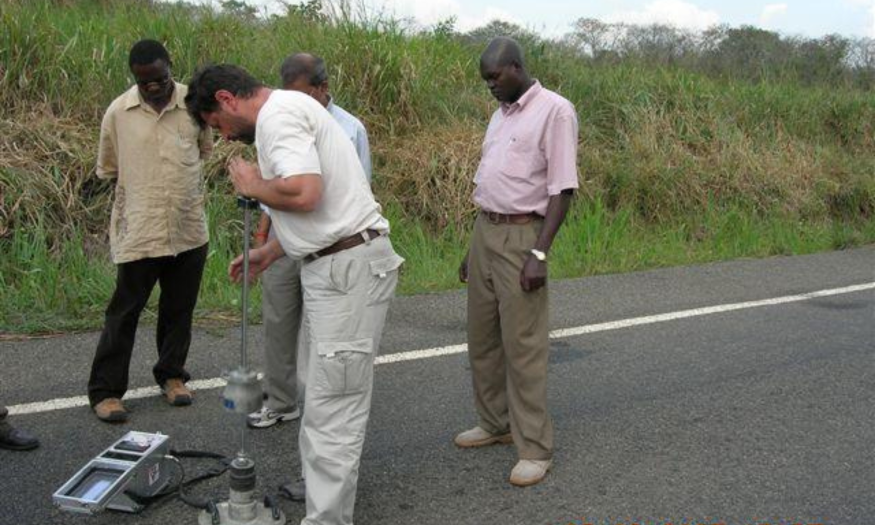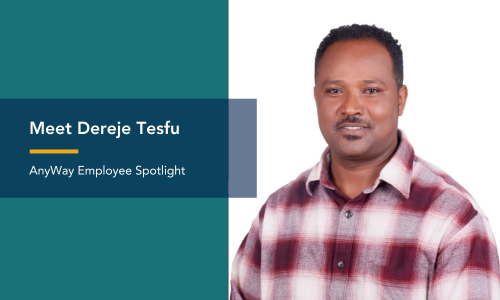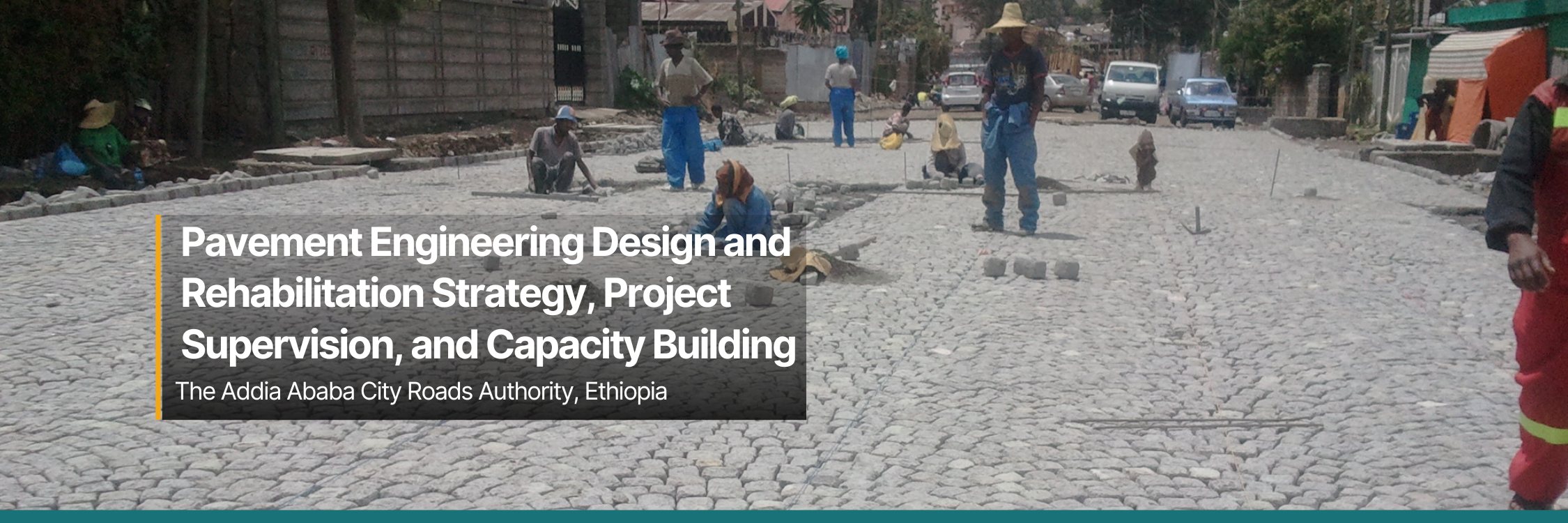
Pavement Engineering Design and Rehabilitation Strategy, Project Supervision, and Capacity Building
The Addia Ababa City Roads Authority, Ethiopia
Project Objective:
With a population exceeding 12 million and experiencing rapid urbanization, the City of Addis Ababa prioritized the improvement of its road infrastructure with a vision to rehabilitate and upgrade the roads network in the City’s older quarters. To do this, the Addis Ababa City Roads Authority (AACRA) was selected as the Project Implementing Unit. The project’s main objective was to upgrade existing dirt and gravel roads with durable cobblestone pavement. To support the full implementation of this solution, a comprehensive program was developed with the support of the World Bank and GTZ.
The Challenge
When AACRA began designing the project, a major challenge quickly became apparent. Addis Ababa is built on a huge volcanic mountain and the predominant natural soil, black cotton soil, is notoriously difficult for road construction. The soil has a very low load-bearing capacity (less than 1% CBR), high susceptibility to moisture, and tends to expand when wet and shrink when dry. These characteristics make it one of the least suitable soils for building durable roads.
AACRA’s catalog design manual called for replacement of between 60-100 cm of black cotton soil before placing new road construction materials. Applying this method across large sections of the city would place an unsustainable burden on Addis Ababa. It would involve thousands of trucks transporting millions of tons of black cotton soil to disposal sites out of the city while simultaneously hauling in large volumes of suitable construction materials. The environmental effects of that would be detrimental to the population, causing significant pollution and and carbon emissions along with additional damage to roads caused by the heavy loads.
A more comprehensive and sustainable approach was required to address the project’s challenges and create a more robust pavement structure capable of withstanding the pressures of a changing climate. Additionally, the solution needed to support the continued involvement of community SMEs that were created as part of the project.
Our Role
The project called for creative, climate resilient sustainable pavement designs with practical techniques that would rehabilitate and upgrade existing urban roads while also addressing the challenges associated with black cotton soil. Through the implementation of these designs, the project also aimed to build the capacity of the local workforce including engineers, contractors and workers by introducing advanced engineering concepts and providing relevant training on implementation techniques.
The core of AnyWay’s contribution was through an approach known as “road pavement rehabilitation and upgrading through in-situ stabilization.” This approach, combined AnyWay’s proprietary soil stabilization technology, which was particularly effective in overcoming the challenges that the black cotton soil presented. We established a practical and sustainable alternative to the conventional method of soil excavation and replacement, significantly reducing the need for transporting materials in and out of the city.
AnyWay provided the pavement design and construction supervision. We worked with AACRA’s teams across the city. During this phase, we provided training on advanced solutions that allowed AACRA to build these roads faster, without the need to haul waste materials and import new materials to each of these projects.
The Results
A total of 27 kilometers of cobblestone–paved roads were constructed in a fraction of the time it would have otherwise taken (a few months instead of a few years). By avoiding the need for mass transport of construction materials in and out of the city, the project significantly reduced traffic disruption, environmental impacts, and overall project costs were reduced by up to 26%.
We supported the capacity building of local stakeholders. Many of AACRA’s staff received training in advanced engineerig designs, technologies, and techniques. A focus was placed on enhancing climate resiliency, minimizing the environmental and social footprint of project, and creating sustainable long-term solutions to local communities.
The project served as a turning point for AACRA and later for other road authorities in Ethiopia, in how they approached road design and construction. It helped shift the focus toward integrating climate resiliency into road pavement designs.
Added value from AnyWay Solutions
Through its innovative and holistic approach to the challenges faced by the project, AnyWay was able to increase the social, economic, and environmental impact of the project.
Social Impact – The designs created meaningful opportunities for community-based SMEs to participate in the construction phase. Accelerated project implementation helped minimize disruptions typically caused by infrastructure work in a dense urban setting like Addis Ababa, thereby reducing inconvenience to residents and businesses. In the longer term, the improved road network has significantly enhanced access to essential services such as education, healthcare, and markets. Access to these important services has improved and remained reliable in various climate conditions, including the extreme climate events that have occured in recent years.
Economical Impact – It is well documented that better roads have a positive significant impact on economic development in areas surrounding them. This was clearly seen in neighborhoods like Gerji, where upgraded access benefited numerous markets, as well as in newly developed residential areas such as Jemo, where the new roads supported the growth of commercial centers and markets. The improved mobility has stimulated business activity, job creation, and property development across these communities.
Environmental Impact – There is less congestion and pollution by reducing the need for transport trucks in and out of the city and less damage to the environment by reducing the need to quarry pavement materials. In the long term, the transformation of dusty dirt and gravel roads into cobblestone pavements has greatly reduced airborne dust and pollution in the city. Smoother traffic flow has also helped reduce vehicle emissions, further contributing to improved air quality in Addis Ababa.



